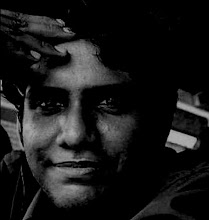My idol, the great Sarvepalli Radhakrishnan once said, “Democracy depends for its very life on the high standard of general, vocational and professional education.
“Dissemination of learning, incessant search for new knowledge and, increasing efforts to plumb the meaning of life, and provision of professional education to satisfy occupational needs of our society are the vital tasks of higher education.”
Source: “New ideas to invigorate science education” – D. Balasubramanian, The Hindu – page 17, Thursday, 12-07-2007.
This was said by the great man back in 1948; and now with the passage of nearly 60 years since that date, the situation has become all the more dire if anything. Anyone living in India, among our public can easily notice that education in the sciences is being forsaken as the public moves in favor of professional courses. And that too we aren’t doing sincerely.
Our response to an incompetent workforce is that instead of working to improve their standard by improving the quality and/or reach of education available in the universities of our country, we attempt to lower the standards of educations by introducing political gimmickry in the form of useless and often detrimental ordinances. A prime example of one such ordinance is the reservation bill.
Lots of people have expressed their opinion as to why exactly the reservation bill is detrimental to our country and society, I am not going to do that.
Let us take into consideration the “elite” institutions of our country. These are the institutions that are a focus of much debate – the IITs and IIMs. Though they are exemplary institutions and are way above almost all other Indian institutions in their respective fields, they fall drastically short of the international standard. No Indian institution figures among the top 200 universities in the world. You can clarify my claim on the following website:
Top 500 World Universities
I believe I mentioned this in one of my earlier posts, but I sincerely believe that the matter is grave enough to warrant a repetition. The way I see it, the universities themselves are not to blame; for I have heard from reliable sources that we do have pretty good people working in the faculty of our universities. I believe that these universities are ranked so low because the students who enter them are sub-standard, and even if all forms of reservation were to be abolished, the students entering these universities would still be sub-standard. Here’s why:
The students who enter these universities are the ones who have been through our “lower-education” System i.e. they have been through the classes 1 to 12 in either CBSE or the syllabi of the states. Therefore, they have been through a System that has systematically wrung out and eliminated all imagination from them.
The imagination I am referring to over here is not artistic imagination, because every human being is artistic at some level, no matter how mundane. It is scientific imagination that they are seriously lacking in. It is scientific imagination and creativity that allows one to innovate and invent. We seriously need to improve the quality of education at the grass-root level.
Now, as far as the “elite institutions” (the IITs, IIMs,NITs, etc.) are concerned. Their quality can be improved immediately by incorporating a few changes in the structure of examination. The current structure is pretty good, but almost anyone who has been to the training centers where they make the students study 12 hours a day and practice the questions till they have been burnt onto their brains can get through.The change I suggest is to make it mandatory for every student aspiring to enter the institution to write a statement of purpose, an essay on why they want to do a particular course in a particular institution. Once the results come in, feed them into a computer and match them against the essays that have been printed in test papers and/or guides. Eliminate the ones that match the pre-written ones and then rank the others and qualify only the best ones for the written exam. This should bring about a quantum leap in the quality of people entering the universities.
Now, what does all this have to do with democracy? What do the IITs and other elite Indian Institutions or even primary education for that matter have to do with democracy? The way I see it, they have everything to do with democracy. Democracy, can be defined as “a political system in which the supreme power lies in a body of citizens who can elect people to represent them”.
http://wordnet.princeton.edu/perl/webwn?s=democracy
In other words, the general population of a country elects certain citizens of their own country to represent them and to take decisions on their behalf. Therefore, the quality of the people elected for the task of decision making depends directly on the judgment of the people who do the electing. In order to elect able and just “leaders”, the people who do the electing (a.k.a the electorate) should be fairly good at analyzing and reasoning out the pros and cons of each of the contestants in the election and then make the unbiased decision of voting for the best person for the job.
Thanks to the low standards of our education System, the electorate (except for a miniscule minority), lacks those analytical and reasoning skills. Therefore, the majority of the people in our country believe all the bullshit mouthed by the politicians while campaigning even though they have heard of the misdeeds of the same politicians and proceed to vote for them. Therefore, in the absence of a System of education of good quality, democracy turns into a System of government which brings the most corrupt, incompetent, inept and unworthy people to power.
In the absence of a System that imparts quality education, democracy, what was once a noble idea is transformed into what can be termed as (thanks to the Hindi film industry) a Goondaraj. That is why, improving the quality of education in India, and making primary education compulsory in India is of paramount importance.
20070717
Subscribe to:
Posts (Atom)







